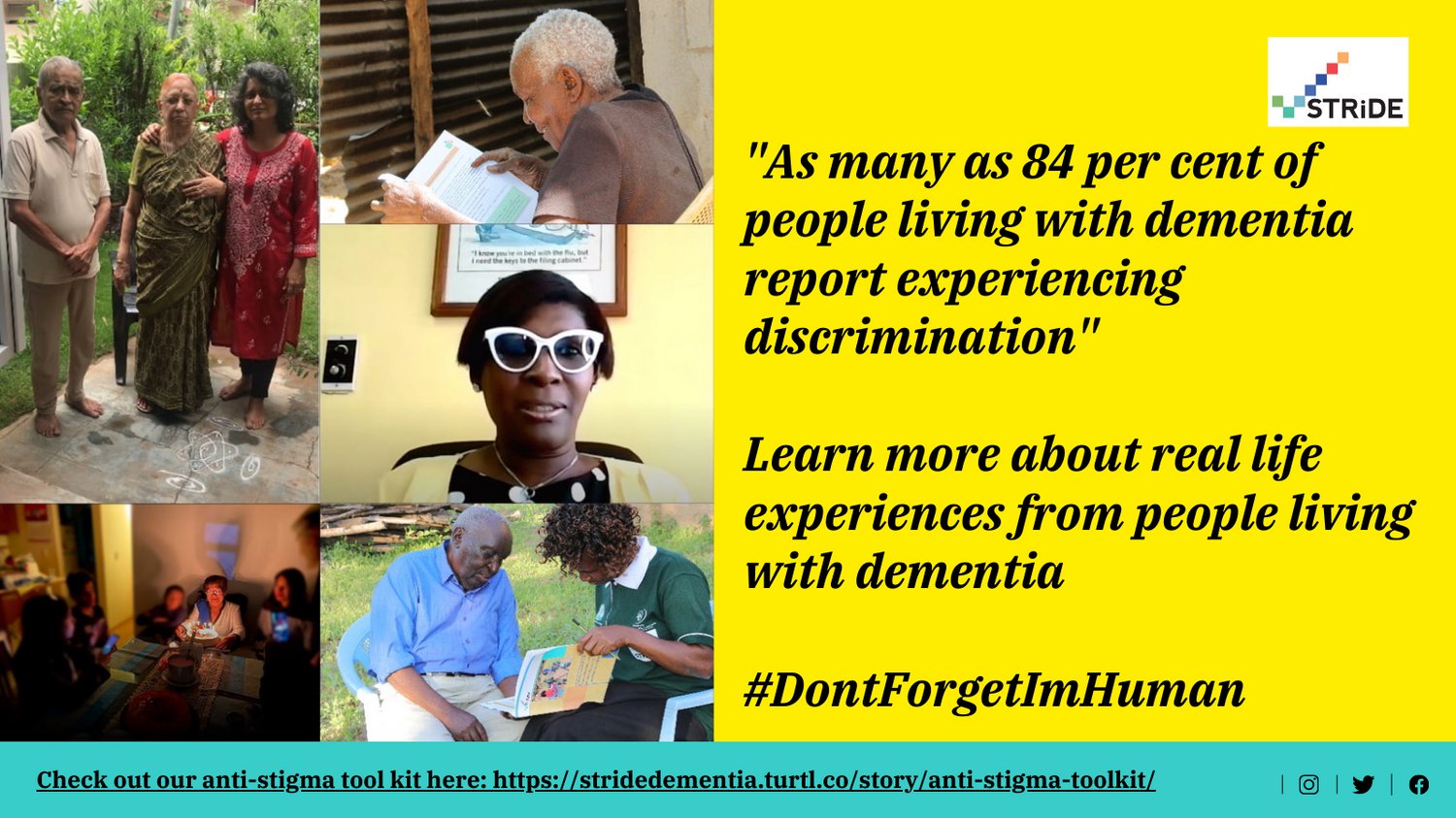New STRiDE anti-stigma toolkit
New STRiDE anti-stigma toolkit
07 Oct 2022
BrazilIndia
Indonesia
Jamaica
Kenya
Mexico
South Africa
WP03 Reducing stigma

Introducing the new STRiDE Dementia Project Anti-Stigma Toolkit (PDF)
The consequences of stigma are often described as being as bad or worse than the impacts of dementia itself. At the individual level, stigma can undermine life goals, reduce participation in meaningful life activities and worsens a person’s quality of life. At the societal level, it can influence policy and reduce funding allocated to care and support.
The STRiDE Project has produced an anti-stigma toolkit building on evidence generated from the STRiDE project about how to reduce stigma and discrimination.
The toolkit is rooted in the voices and experiences of people living with dementia and their care partners, and is a collaborative effort developed by people living with dementia, carers, advocates and researchers involved in STRiDE. The toolkit includes the voices of people from Brazil, India, Indonesia, Kenya, Jamaica, Mexico and South Africa, in addition to the UK.
It provides a set of practical tools from seven different low-and middle-income countries to help others think about the impact of stigma and how to challenge stigma against people living with dementia and their care partners.
The toolkit:
- shares first-hand experiences of stigma and discrimination and the consequences that it has for people living with dementia and their families –indeed describing the painful scars that result from being shunned or excluded;
- conceptualises stigma as problems of knowledge (ignorance), problems of attitudes (prejudice), and problems of behaviour (discrimination).
- provides evidence-based approaches to reducing stigma and discrimination illustrated through a series of case studies showing how people living with dementia and carers confronted stigma in their own life.
STRiDE colleagues want to share the Toolkit as widely as possible. However, with this toolkit, they also make a call to action to go beyond improving knowledge and awareness raising and to consider how we can change hurtful behaviours, unfair treatment and policies and promote inclusion. An important aspect of achieving this social change is to empower people living with dementia to lead these initiatives and the Toolkit discusses strategies for this.
Read the Toolkit here (English version) and share it widely.
The toolkit is available in the following additional languages:
Swahili: Usisahau mimi ni binadamu – Kukomesha Unyanyapaa wa Dementia – Zana ya STRiDE ya kupinga Unyanyapaa
#DontForgetImHuman
Full Toolkit (English version):
Evans-Lacko S, Farina N, Ferri C, Franzon AC, Godoy C, Hurzuk S, Jacobs R, Mata F, Mateus E, Musyimi C, Muyela L, Oliveira D, Ong E, Ortega M, Surawattananon N, Weidner W (2022) Don’t Forget I’m Human – Stopping Dementia Stigma. The STRiDE Anti-Stigma Toolkit, STRiDE Project, London.
